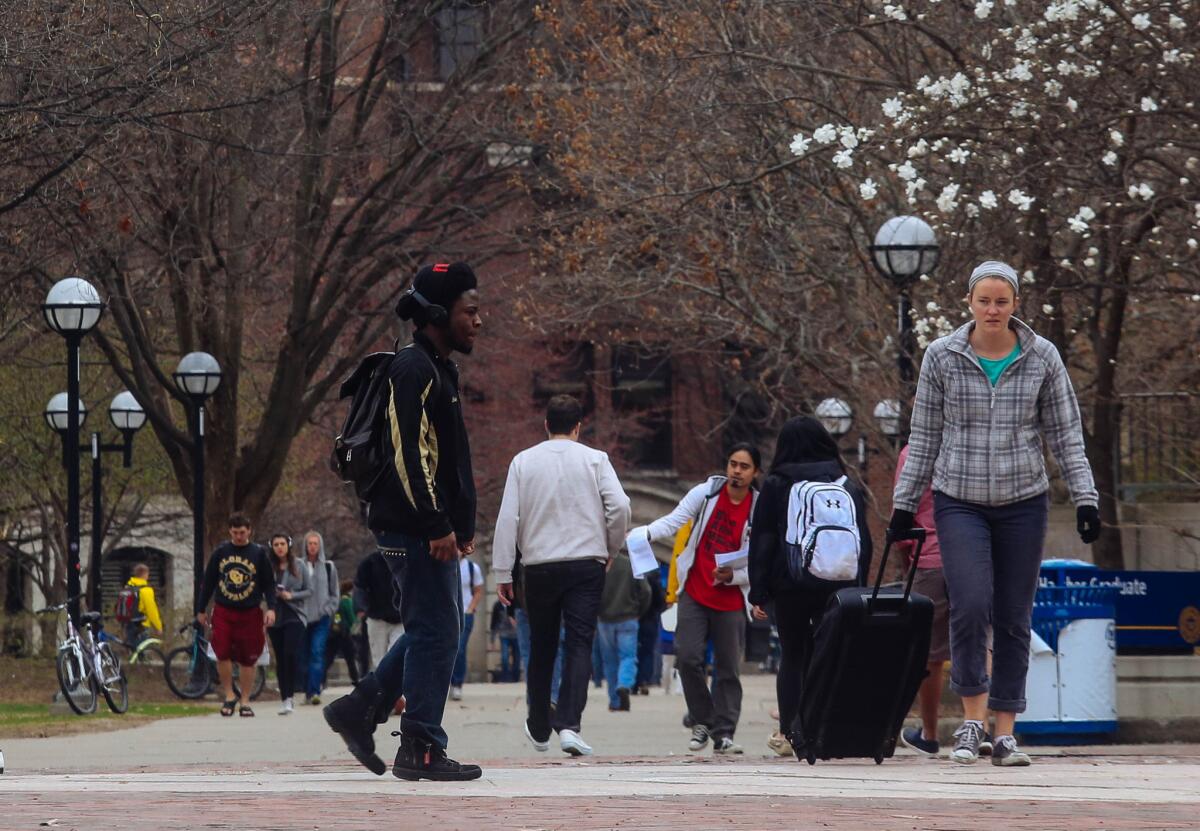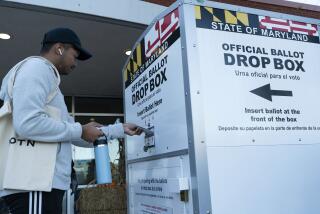Editorial: Affirmative action banned? It’s not that simple.

“Supreme Court rules against affirmative action.” That is likely to be a common shorthand description of Tuesday’s decision upholding the constitutionality of Michigan’s ban on the use of racial preferences in admission to state universities. But it’s misleading.
The 6-2 decision leaves undisturbed previous rulings in which the justices said that state universities may take race into account in admissions policies without violating the U.S. Constitution. But the court now has made it clear that although such preferences are permissible, voters may opt to prohibit them. That obviously creates an additional hurdle for those who believe — as this page does — that public institutions such as the University of Michigan or UC Berkeley should be able to consider race as one factor in assembling a diverse student body.
We wish that voters in Michigan and in California, which passed a similar ban in Proposition 209 in 1996, had rejected ballot measures that prohibit state universities from granting preferences “on the basis of race, sex, color, ethnicity, or national origin.” But we agree with Justice Anthony M. Kennedy, the author of the lead opinion in Tuesday’s decision, that nothing in the Constitution authorizes the judiciary to second-guess the voters’ decisions.
DOCUMENT: Read the court’s ruling
The U.S. 6th Circuit Court of Appeals had taken a different view. It held that the Michigan ballot question unconstitutionally discriminated against racial minorities by putting a “unique burden” on them. That court noted that although the amendment allowed a student to receive a preference based on whether or not any of his family members had attended the school, a black student hoping to benefit from a similar preference on the basis of race would be required to amend the state Constitution.
That theory of “political process discrimination” didn’t come from nowhere. Twice the Supreme Court has struck down measures that made it harder for minorities to achieve their goals by placing a political burden on them that didn’t apply to others. But Kennedy argued that those precedents involved attempts to remedy intentional discrimination (not to establish preferences) and, more important, that there is no reason to remove an issue from the democratic process just because it has racial implications.
We agree. Racial preferences in university admissions, however desirable, aren’t constitutionally required. As Justice Stephen G. Breyer wrote in his separate opinion: “The Constitution …foresees the ballot box, not the courts, as the normal instrument for resolving differences and debates about the merits of these programs.”
The political sensitivity of this issue was made clear recently when legislators in Sacramento backed away from a proposal to repeal Proposition 209’s ban on racial preferences in education. But now, as before Tuesday’s decision, those who believe — rightly — in the importance of robust affirmative action need to convince their fellow citizens that it is good for society as a whole as well as for its beneficiaries.
More to Read
A cure for the common opinion
Get thought-provoking perspectives with our weekly newsletter.
You may occasionally receive promotional content from the Los Angeles Times.






